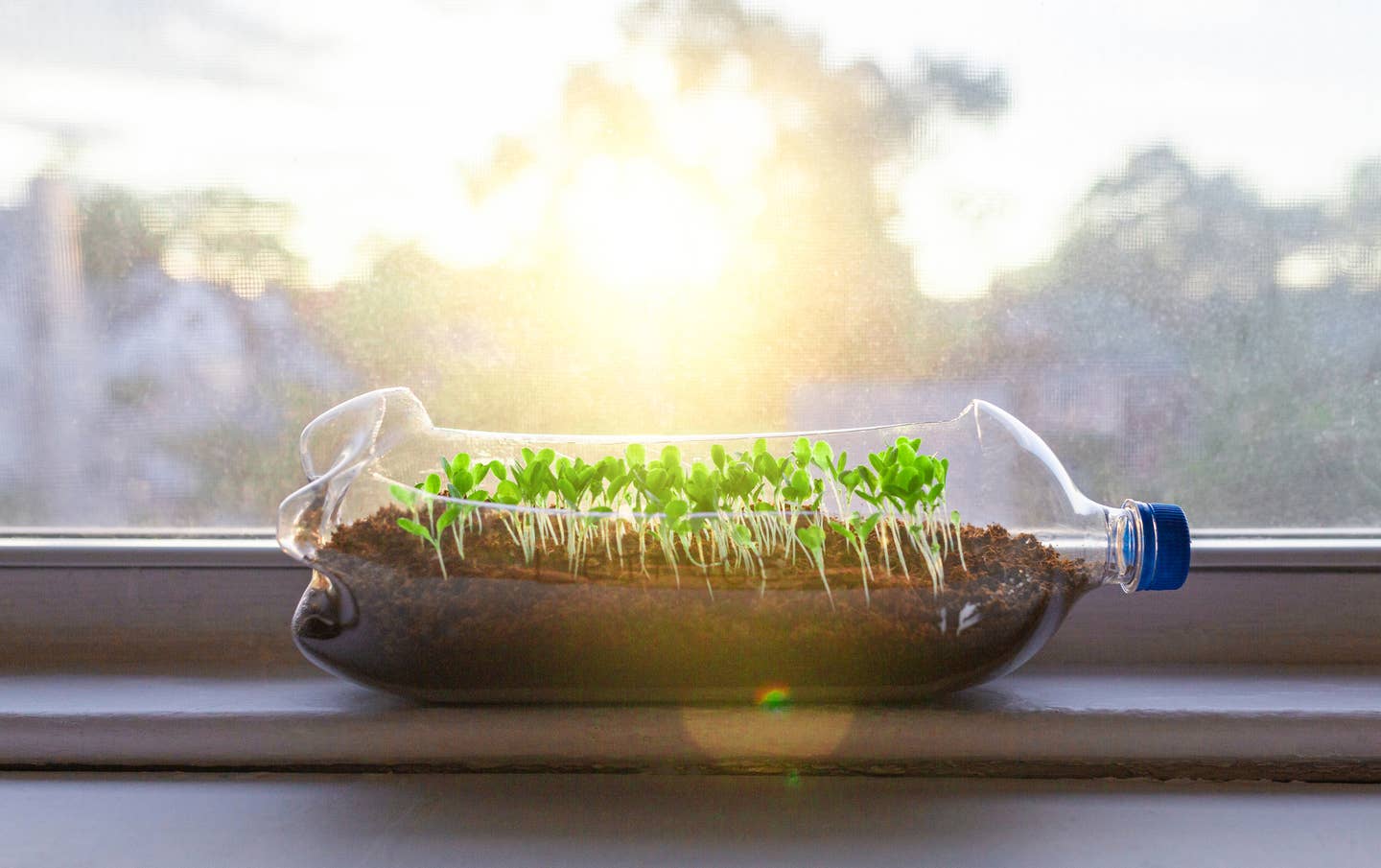
A Brand New Plant-Based Water Is Launching to Make Bottled Water More Sustainable
A leading company in the food and beverage industry has produced the first plant-based water bottle, which is made entirely from fermented plant sugars.
Agthia Group, the creators of Al Ain, a popular drinking water brand in the Middle East, will distribute the first shipment of the plant-based water bottles in a few months, according to the interview with Tariq Ahmed Al Whaedi, the Chief Executive Officer. Al Wahedi says, “The bottle is environmentally friendly and made of 100 percent plant-based sources, including the cap.... It is biodegradable and compostable within 80 days under specific conditions.
"The revolutionary innovation is set to improve the carbon footprint by 60 percent as compared to other packaging material.” The water bottles are not available in the US, yet, but they spark conversation about future regulations on plastic, and whether top drinking water brands like Nestle or Poland Spring will begin to ship their water in plant-based containers. This innovation is a harbinger of what’s to come.
How are the plant-based water bottles made?
“Agthia makes the new bottles from corn sugars, which it processes into a resin and molds like plastic," according to Bloomberg Green. "It fashions the bottle caps from fermented sugar cane”.
The plant-based water bottles are considered biodegradable containers, and according to Al Wahedi, the plant-based materials can decompose in less than three months. That’s a shorter time than most plastic water bottles, which take up to 450 years to decompose.
Where are they going to sell this product?
The Abu Dhabi-based company hopes to partner with potential buyers across the United Arab Emirates and sell their product in large entertainment capacities, like hotels and restaurants.
What’s the difference in price of plant-based bottles?
The plant-based bottles are costlier to produce than plastic bottles. But in the end this may even out, as production gets less expensive and weight against the cost to cleaning up plastic that litters the oceans, price is but one factor.
Al Wahedi, gave no details in the price difference or how much it cost to make one plant-based bottle. We also have to consider the shelf life of these bottles. The plant-based containers have a much shorter shelf life than plastic bottles (An unopened plastic water bottle has a shelf life of two years), so if the plant-based bottles sit around, they will go to waste. What does this mean? Production will need to be faster, the consumer needs to be willing to spend more, and demand has to be high for these to work.
According to Bloomberg Green, Agthia currently sells 50 million cases, or about 1 billion liters (264,000 gallons), of water a year. All of them could use plant-based bottles if there's enough demand and resin available.
The company wants to produce 5% of its bottles from plant-based sources by 2021, though it isn’t marketing them to the general public yet because the bottles require special handling for collection and decomposition.
Are we headed to a more sustainable future and a plastic-free world?
The Beet applauds this effort, even if it is early days in the supply chain. Any chance we get to eliminate plastic and lower our carbon footprint is a step in the right direction.
More From The Beet






